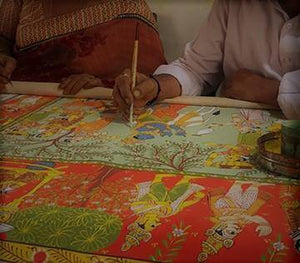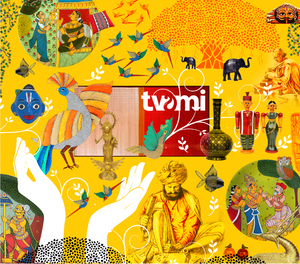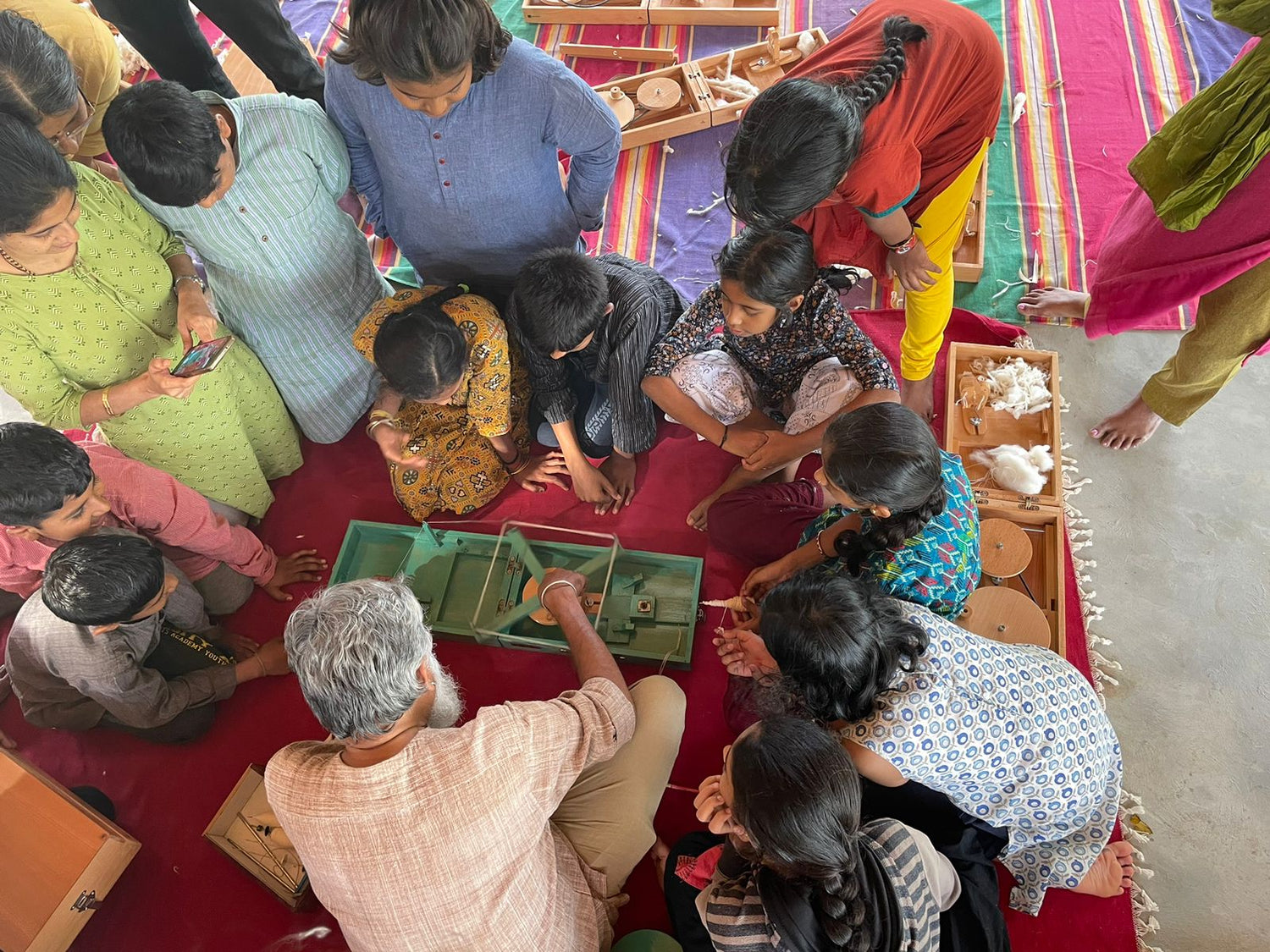The Artisan
An 18th generation Mata ni Pachedi artisan, Vasant Manubhai Chitara was born in Vasna, Gujarat and has learnt this craft from his father Manubhai Chunilal Chitara, who won the Shilpaguru title in 2009. Having been introduced to the art form at the tender age of 10, Vasant was immediately attracted to kalam work. According to him, he didn’t have to struggle to learn this craft because it is a family tradition and the art form is in his blood. Perhaps it does - he won the National Award in 2001 and his wife, Anitaben Vasant Chitara, won it in 2008.
The Process
Each person of his 25-member family practices Mata ni Pachedi. The art-form is a time-intensive one and so, each artisan has a different task - preparing the cloth before painting, preparing the colours, kalam work, block printing, colouring, and washing the painting in the river water, and so on. Washing the cloth in the river is considered a somewhat risky activity and, as a result, is done only by the men of the family.
The Present
Every family has a different design style and Vasant is maintaining his, but claims that several others are copying his family’s designs. For market demand, the family has extended the art form to products like sarees, dupattas, and wall hangings, and has started to use different natural colours such as indigo, yellow, green etc. apart from the traditional red and black. Pure alizarin and indigo, however, have become a rare find. Indigo has to be applied several times to get the right colour.
Today, Vasant teaches the Mata ni Pachedi painting style in different design institutes. He also trains new-generation artists and then absorbs them in his own practice.
The Future
The COVID-19 pandemic has had a significant impact. It has become a challenge giving work to all the artisans since the reduced number of orders coming in is easily managed by his own family. He hopes that times will change and that he will be able to employ all those men and women who once used to work with him.
When asked about the future of Mata ni Pachedi, Vasant says, resolutely, that they will continue doing this to maintain their 300-year old family tradition, but that the actual future of this craft depends on the customers and their demand.



